By Carlotta Gall
 Ablet Abdugani with his daughter Serife, 15, and his sons Abdussalam, 11, and Abdullah, age 5, at their home in Istanbul, Turkey.
Ablet Abdugani with his daughter Serife, 15, and his sons Abdussalam, 11, and Abdullah, age 5, at their home in Istanbul, Turkey.ISTANBUL — Six years ago, he fled China’s crackdown on Muslim Uighurs and sought refuge in Turkey, joining a community of fellow exiles.
He started a business with his brother, translating and publishing self-help books into their language. His wife got a job as a teacher in a Uighur school where his children began to take classes.
Now, Ablet Abdugani worries the life he built will disappear.
The Turkish government told him he had to leave the country.
That could mean being sent back to China and likely straight into detention in a sprawling network of internment camps where about one million Muslims are held.
“I am scared whenever the door opens,” Mr. Abdugani said in his apartment on the far outskirts of Istanbul.
“I feel very sad about my six years here.”
Uighurs have left China in droves as the government intensified a campaign of assimilation in the western colony of East Turkestan.
In the last three years, at least 11,000 have landed in Turkey, long a favored haven.
Now, they worry they could become pawns in a geopolitical game.
President Recep Tayyip Erdogan of Turkey, who a decade ago called Beijing’s treatment of the Uighurs a genocide, has tried to reduce his country’s reliance on the West by turning to nations such as China.
In recent years, he has secured billions of dollars in loans and investments from the Asian giant to help prop up the faltering Turkish economy.

Renaay Muhammed, center, who teaches the Uighur language to children, with her students in an empty construction lot next to the school in Istanbul, Turkey.
Earlier this year, Turkey deported at least four Uighurs to Tajikistan.
From there, they were sent back to China, alarming the Uighur community and drawing protests on social media.
Turkish authorities later said they would not send any Uighurs back to China.
But Mr. Abdugani, who was not deported, and many others like him remain anxious.
“We are caught in the middle of Chinese-Turkish relations and we don’t even know how much we are worth,” Mr. Abdugani said.
For those who have fled China, Turkey has offered them a place to reimagine their homeland.
Their people share a common heritage and similar languages.
Turkey’s government recognizes Turkic people as their own, making it a rare Muslim-majority nation that has spoken up for the Uighurs despite China’s objections.
They can practice Islam without fear and celebrate the culture of their 12 million people.
They teach classes on religion and the Uighur language and hold a yearly rally for their rights, activities that would be risky, or even banned, in China.
But many Uighurs in Turkey find themselves in a state of impermanence.
They are denied work permits and business licenses, and in some cases permanent residence and citizenship.
Once their Chinese passports expire, they are left effectively stateless.
‘Our people are being tortured’
The Uighurs speak a Turkic language and write in an Arabic script.
Their mosques feature turquoise tiled domes, their homes are decorated with Afghan-style rugs and their kitchens serve up cumin-spiced lamb pilaf and naan.
In their new home in Turkey, the Uighurs found something rare: a chance to restore their way of life and the reservoir of collective memory that China’s ruling Communist Party has sought to erode.
China intensified restrictions on the Uighurs after a spate of attacks in 2014 that the authorities blamed on "extremists".
Arrests and criminal convictions soared.
The authorities have confiscated Uighur books, restricted the use of the language in schools and detained scholars, artists and intellectuals, among others, in indoctrination camps.
Omer Hemdulla was studying in the Middle East in 2017 when his family in China warned him against going home.
The authorities had arrested his brothers and confiscated their businesses, they told him.
He went to Turkey and took over a bookstore in Istanbul in January, joining a burgeoning trade of printing books in the Uighur language.

Omer Hemdulla took over a bookstore in Istanbul in January and prints books in the Uighur language.
“The entire Uighur nation is in danger. Our people are being tortured,” said Mr. Hemdulla, 30, a law graduate.
He and his business partner, Nur Ahmet Mahmut, 32, publish anything they can find, from Uighur history and literature to children’s stories and cookery books.
They sell symbols of their hoped-for republic, East Turkestan — such as its sky blue flag with white crescent and star — items that are outlawed in China.
Mr. Hemdulla stocks books that were banned in East Turkestan.
Among the most popular, he said, are the novel “Awakened Land,” by Abdurehim Otkur, a well-known Uighur author, and “East Turkestan History” by Muhamet Emin Bugra, an exiled Turkic Muslim leader.
“I only read them when I came to Turkey and I realized China oppressed and occupied us a long time ago,” he said.
His shop is among half a dozen bookstores in the outlying districts of Sefakoy and Zeytinburnu in Istanbul, where many of the estimated 50,000 Uighurs in Turkey live.
Another publisher, Abduljalil Turan, 61, started his business in the 1990s, focusing on Islamic books and Uighur history and literature.
He asked friends to bring books to Turkey and then began publishing works of Uighur exiles, including his own writings.
He steadily expanded his stock to 1,000 titles and exports them to Uighur communities around the world.
“It is part of the cause,” he said, “to keep awareness alive about our condition.”
‘Will our culture disappear?’
For many Uighurs brought up under Communism, Turkey provides them a chance to raise a generation unbound by party orthodoxy, children who are free to embrace religion and their ethnic roots.
In China, Niaz Abdulla Bostani was imprisoned for three years for teaching the Quran to Uighur children.
Now, at 87, he holds religious classes for Uighur children on weekends at a local hall in Istanbul.

Niaz Abdulla Bostani, right, a religious teacher who moved to Turkey in 2016, and his wife, Hebibihan Merup.
“Young people come to me and ask questions,” he explained.
“Education is the answer. It will not solve things in a few days, but it will affect you all your life.”
Abdurashid Niaz, 55, was imprisoned for a year in China in 2005 for translating a book by the Egyptian Islamist Muhammad Qutb from Mandarin to Uighur.
He now runs a Uighur school in Istanbul with his wife, and says the internment drive in East Turkestan has made the Uighurs worried about their people’s survival.
“Everyone is discussing whether in 50 years, will our culture disappear,” Mr. Abdurashid said.
Four children were studying geography with his wife, Anifa Abdurashid, on a recent morning, and they leapt to answer questions about their homeland.
“I know the population is 32 million,” the youngest in the class, Abdulla, piped up.
The true population of the region of East Turkestan, of which Uighurs make up half, is closer to 24 million, but Mrs. Abdurashid let it go.
The Uighurs have preserved their identity through five millenniums, said Ferhat Kurban Tanridagli, a musician and scholar of Turkic languages.

Uighur children drew a map of their homeland during a class at a Uighur school in Istanbul.
He runs an arts school with his wife, a singer, and teaches music and dance to Uighur children.
He plays the dutar, a long-necked, two-string lute that has been played for 4,000 years in Central Asia.
“Made in Kashgar, in 1993,” he said proudly, turning the instrument of gleaming peanut wood, inlaid with bone, in his hands, referring to the fabled Silk Road trading town which now lives under tight police surveillance.
He warned that the Uighurs would not be able to withstand China’s onslaught on their own.
“If they destroy us, they will not stop. They will do it to others,” he said.
“All the world needs to say to China to stop. We have no other choice.”
‘Still, there is danger’
This summer, the threat of deportation cast a new shadow of uncertainty over the Uighurs.
Mr. Abdugani, the businessman who had been told in July by the government to leave, said 40 others had received similar orders.
The Uighurs were deeply troubled when the authorities, as part of a crackdown on illegal immigrants, deported a Uighur woman and her two children to Tajikistan, which sent them back to China.
A fourth Uighur, also a woman, was deported as well.
The children were handed to their grandmother, but relatives have no news of the two women and fear they have been detained.
An estimated 2,500 Uighurs do not have legal residency.
Turkey’s interior minister, Suleyman Soylu, said in August that the government was trying to manage migration with “mercy and conscience,” and would not deport Uighurs.
Those without residence papers like Mr. Abdugani could seek humanitarian protection, he said.
That would grant them refugee status and access to health care services but not allow them to work.
Mr. Abdugani applied for humanitarian protection, but several months later was still waiting for a response and risks arrest for his illegal status.
The family was surviving on his wife’s salary and they could not pay for school books or the bus fare, so his children were walking to class most days.
Even as Turkey allows them to stay, many Uighurs said that immigration rules and the state bureaucracy make survival difficult.
Mr. Abdugani said he wanted long-term residence, which would allow him to work and support his family, and after seven years, apply for citizenship.
Businessmen complain they are restricted from developing their businesses, political activists say the authorities limit their demonstrations, and students are only offered free college education if they study religion.
And there is always a lingering fear of China’s reach.

Uighurs with flags of East Turkestan protested outside the Chinese Consulate in Istanbul.
Abdulla Turkestanli, 49, a book publisher, said he was detained without charge by the Turkish authorities for a year in 2017.
He suspected that Beijing had complained about him when he opened a second bookstore in the district of Sefakoy.
The Turkish authorities never explained why he was detained.
“A lot of writers are in prison or dead” he said.
“They are accused of terrorism in China, and so they say we are helping them.”
“I am fine, thanks be to God,” he said, “but still, there is danger.”

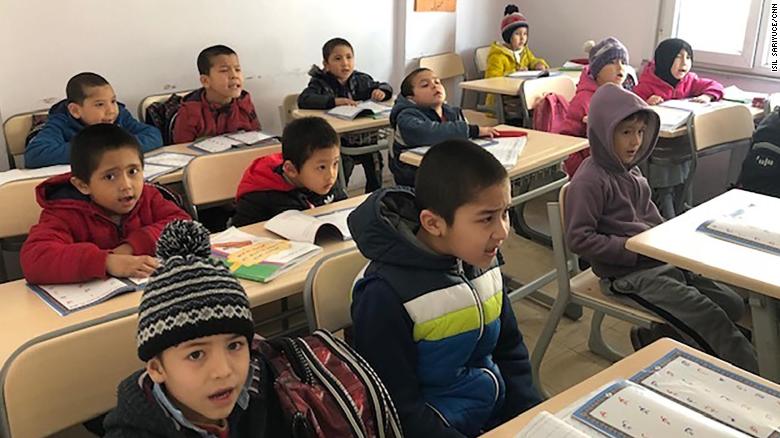
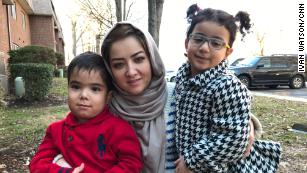
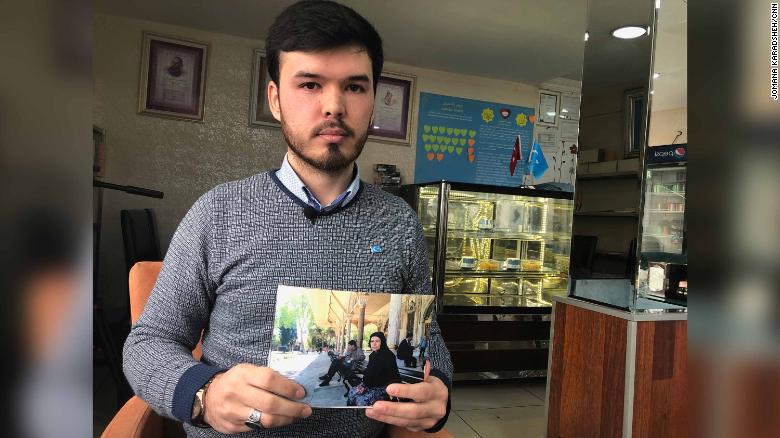
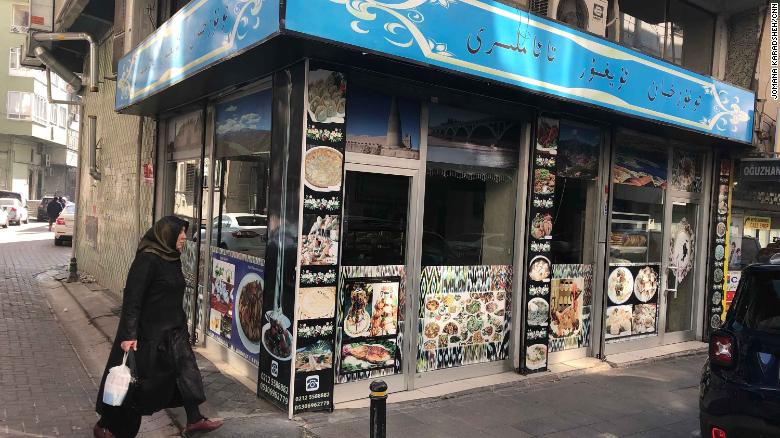
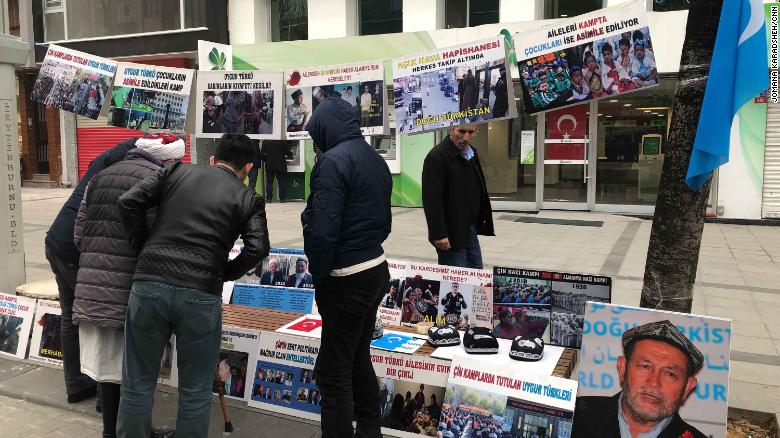
 Workers perfect a decoration in the shape of a train for the 2019 Belt and Road Forum in Beijing, China.
Workers perfect a decoration in the shape of a train for the 2019 Belt and Road Forum in Beijing, China. 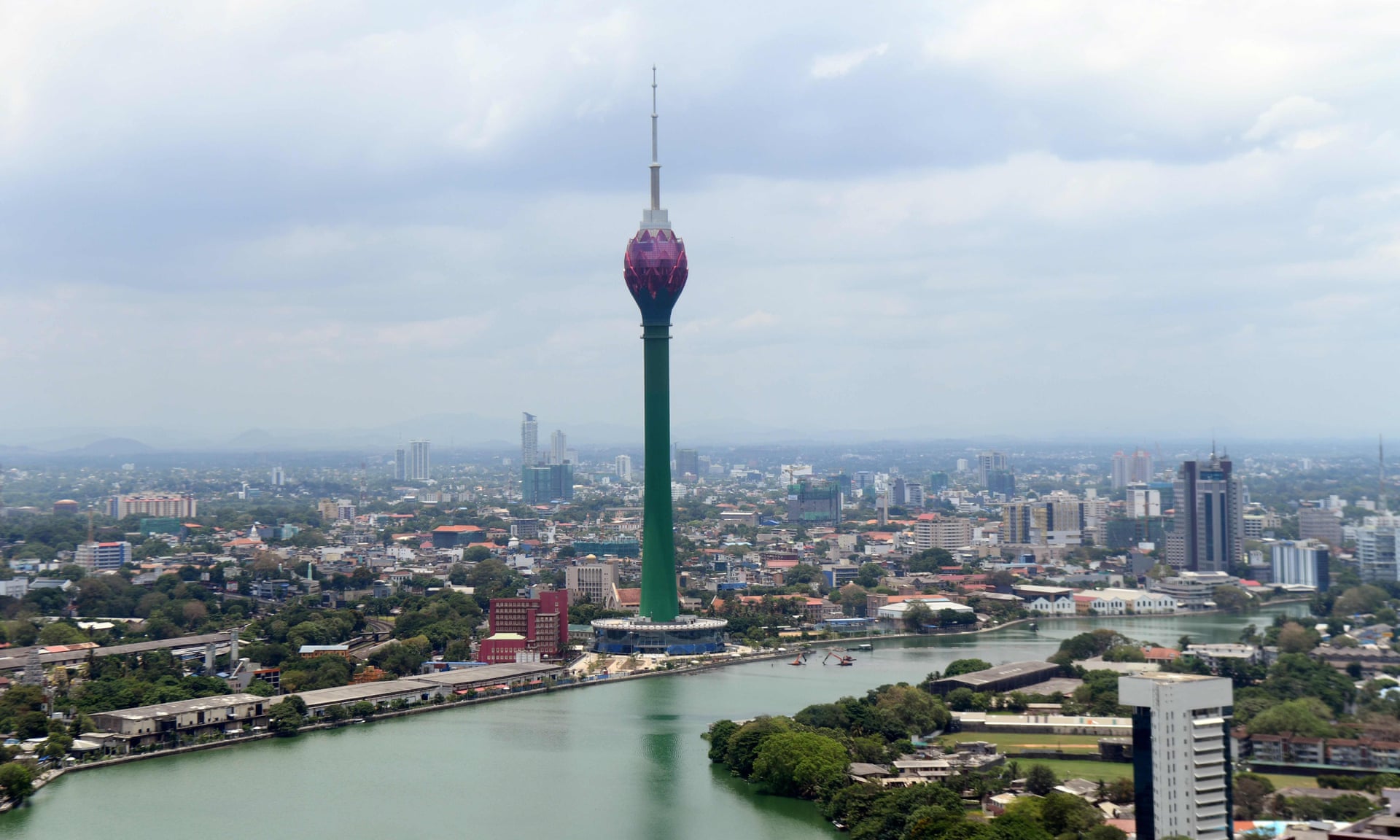
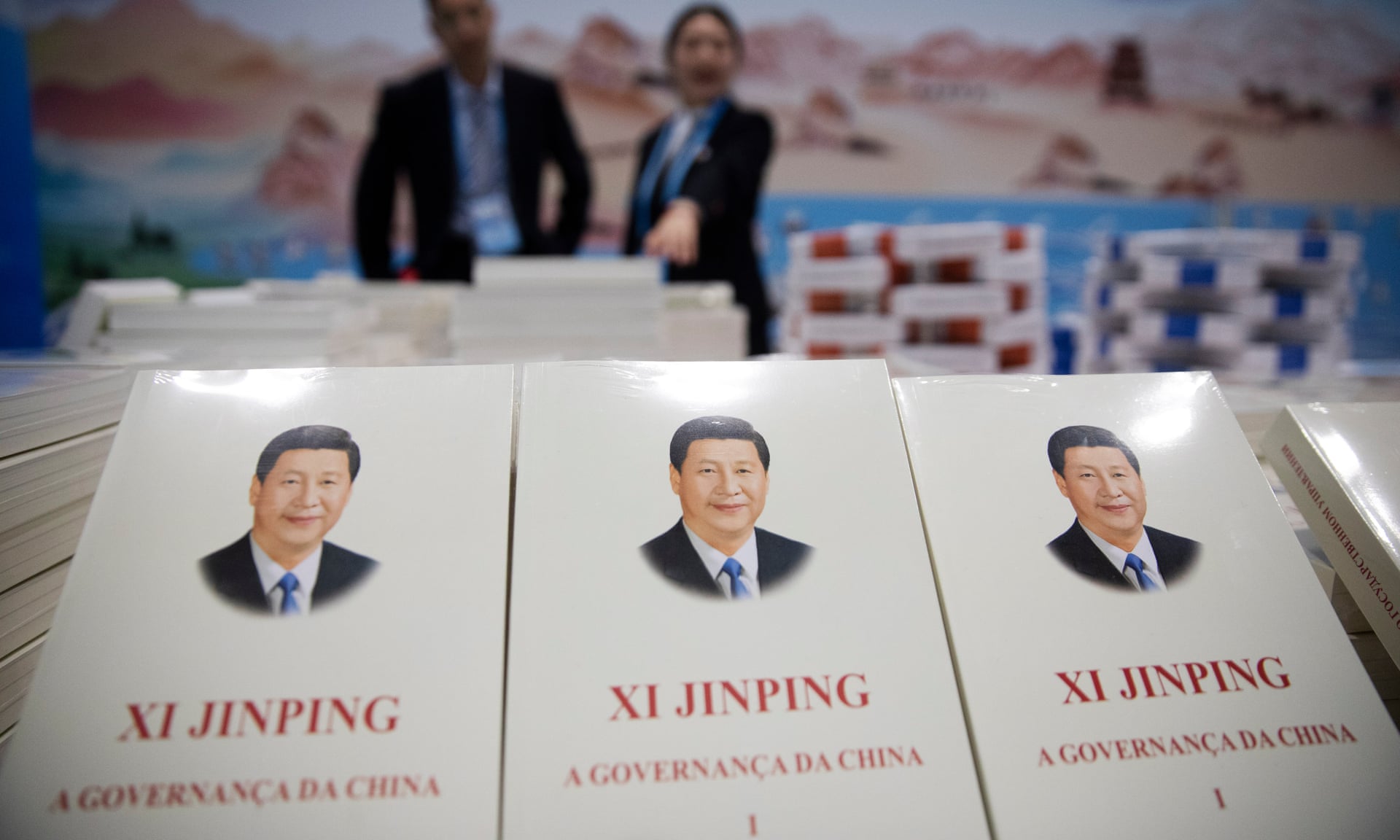
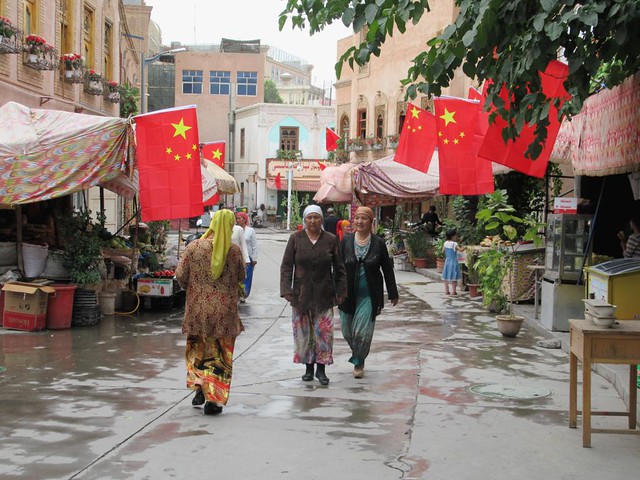
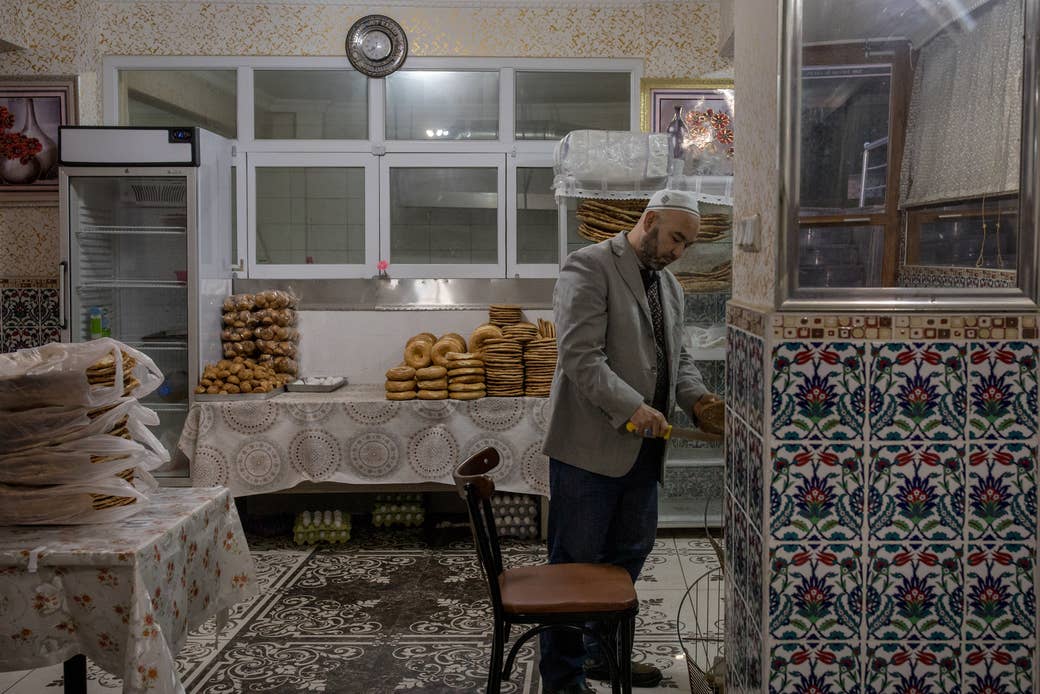


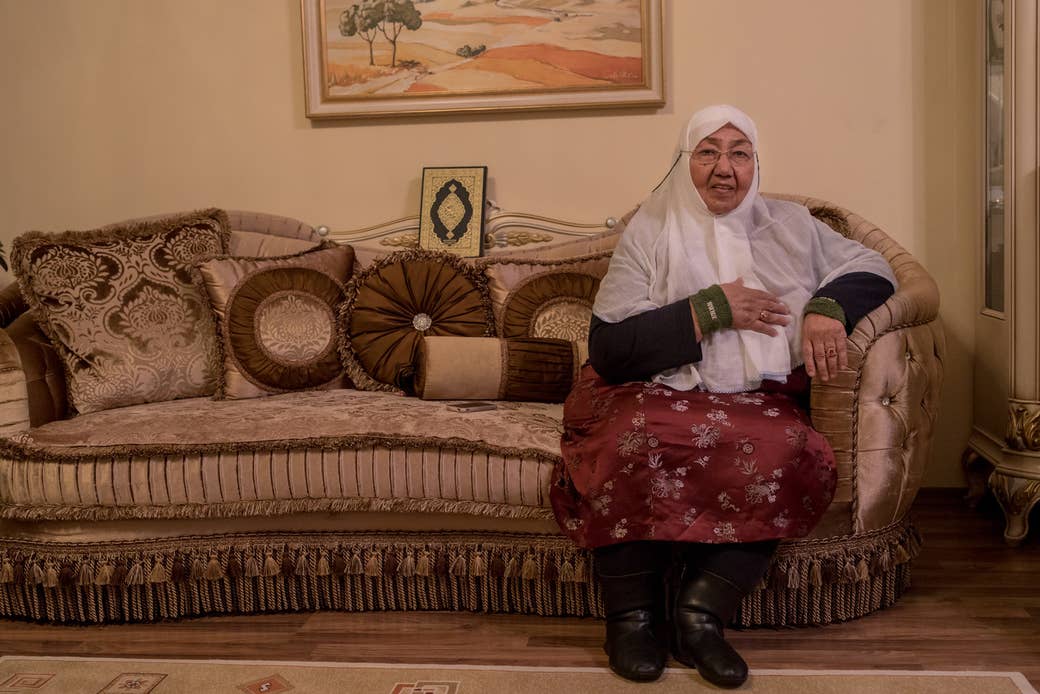
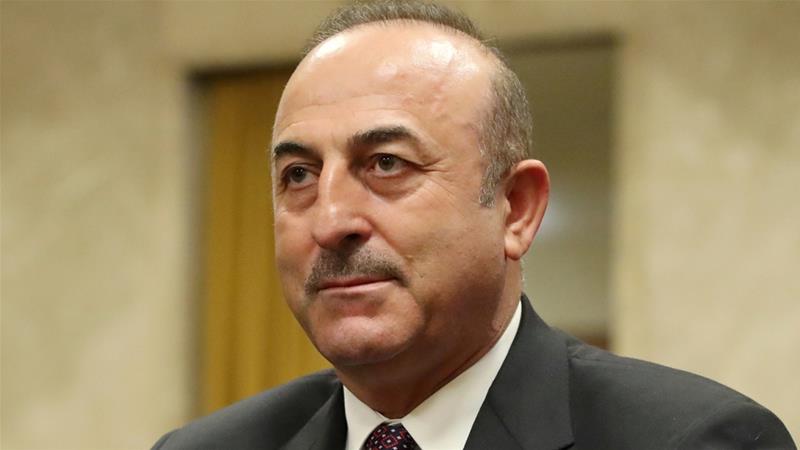 China must learn to distinguish between terrorists and innocent people, Mevlut Cavusoglu said.
China must learn to distinguish between terrorists and innocent people, Mevlut Cavusoglu said.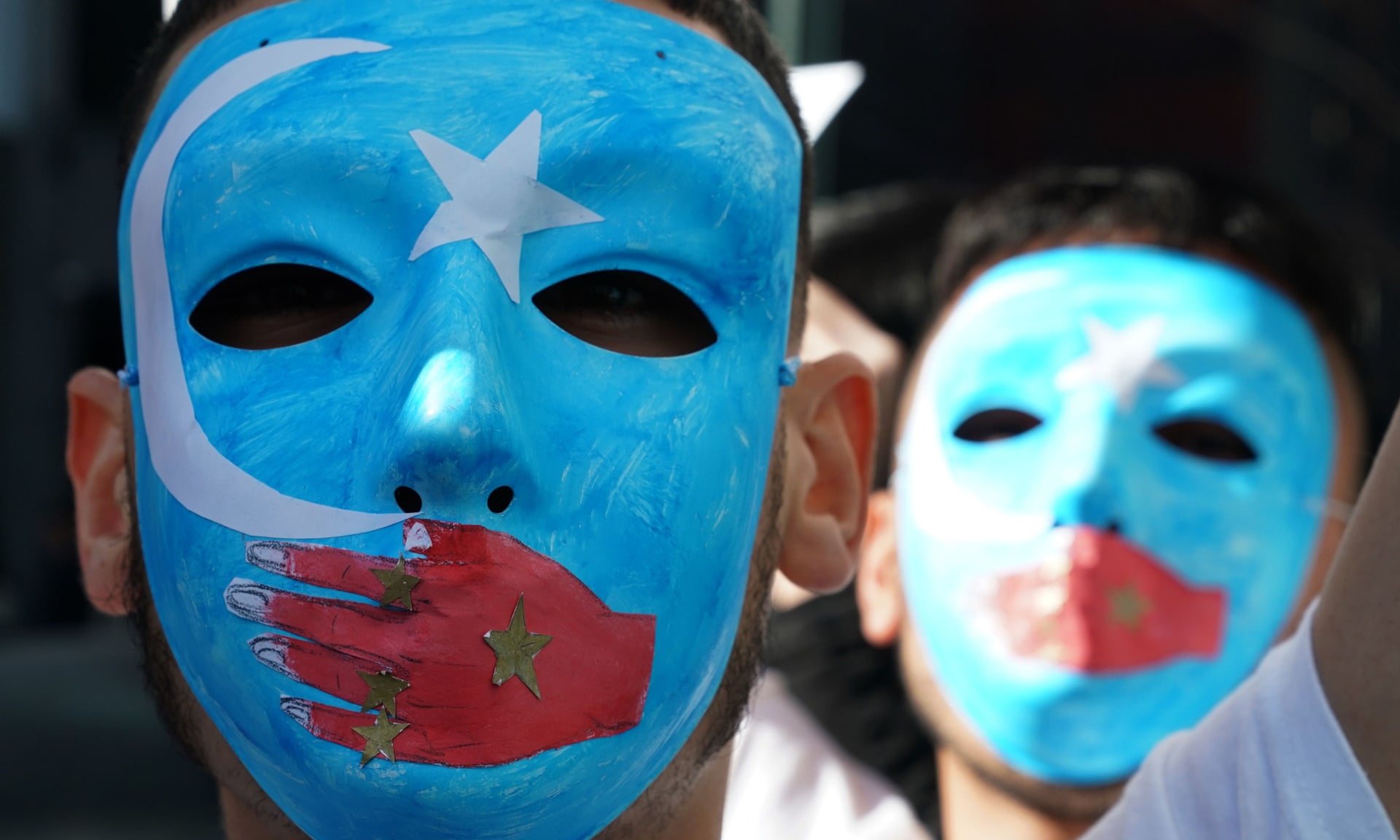
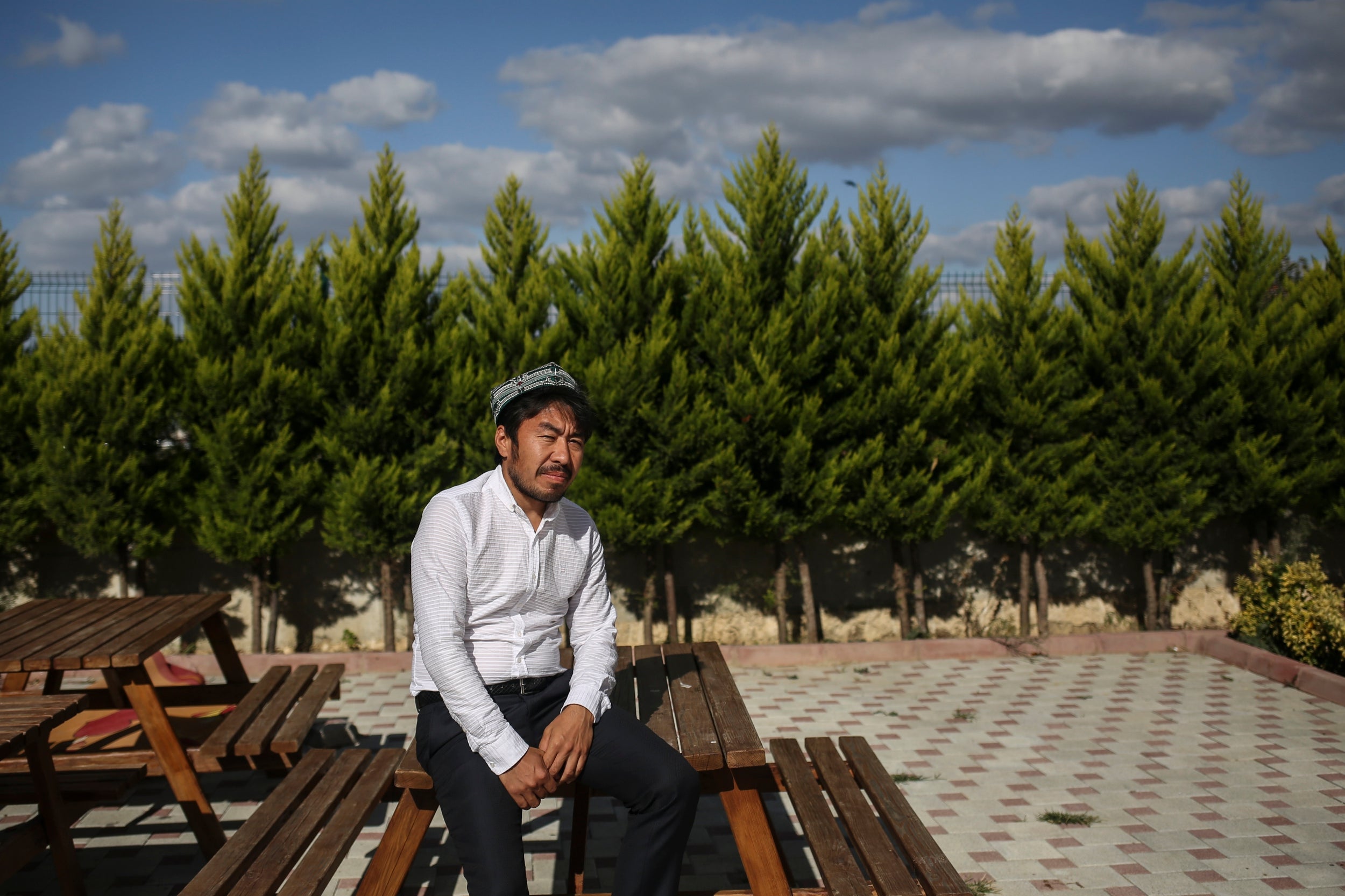
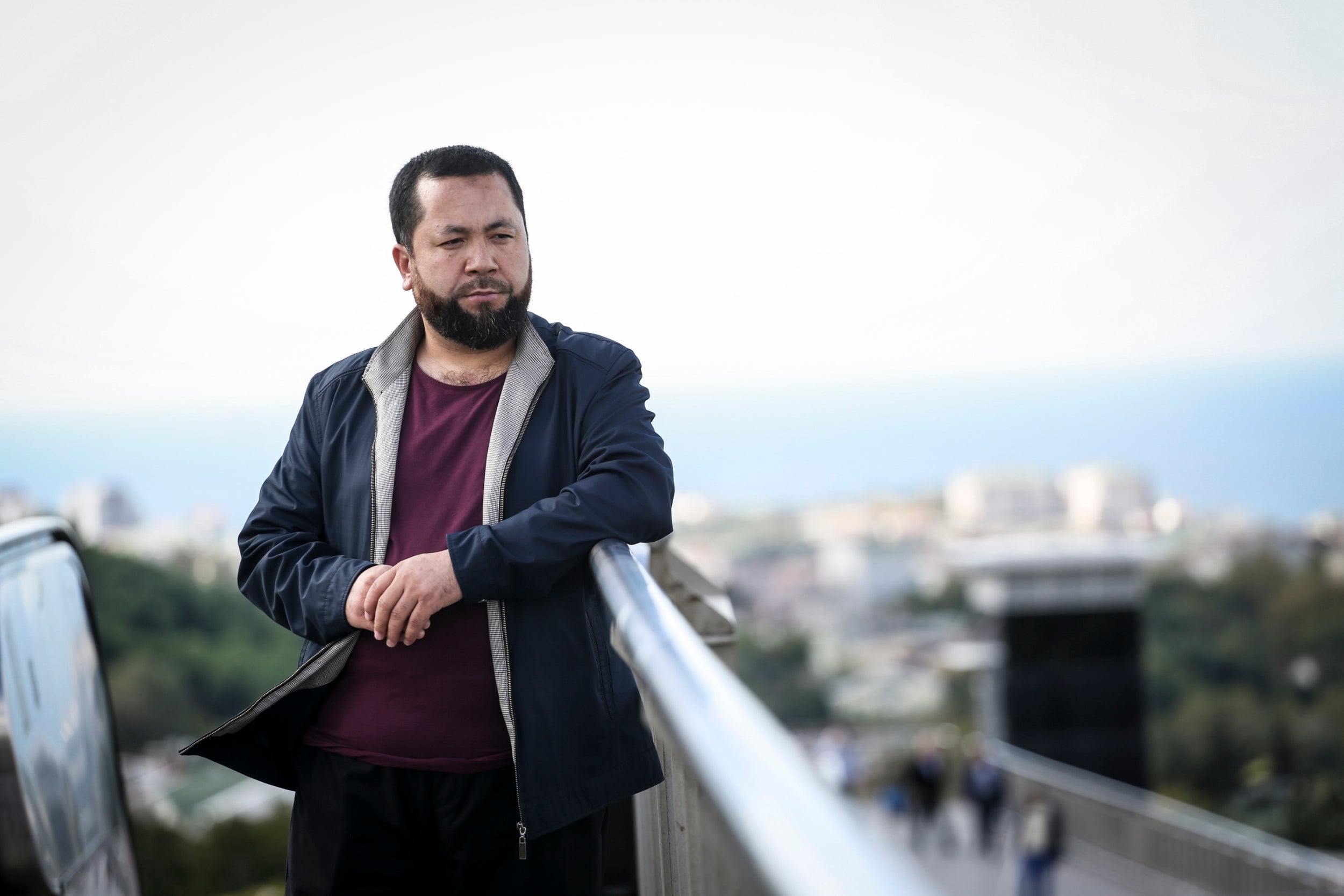
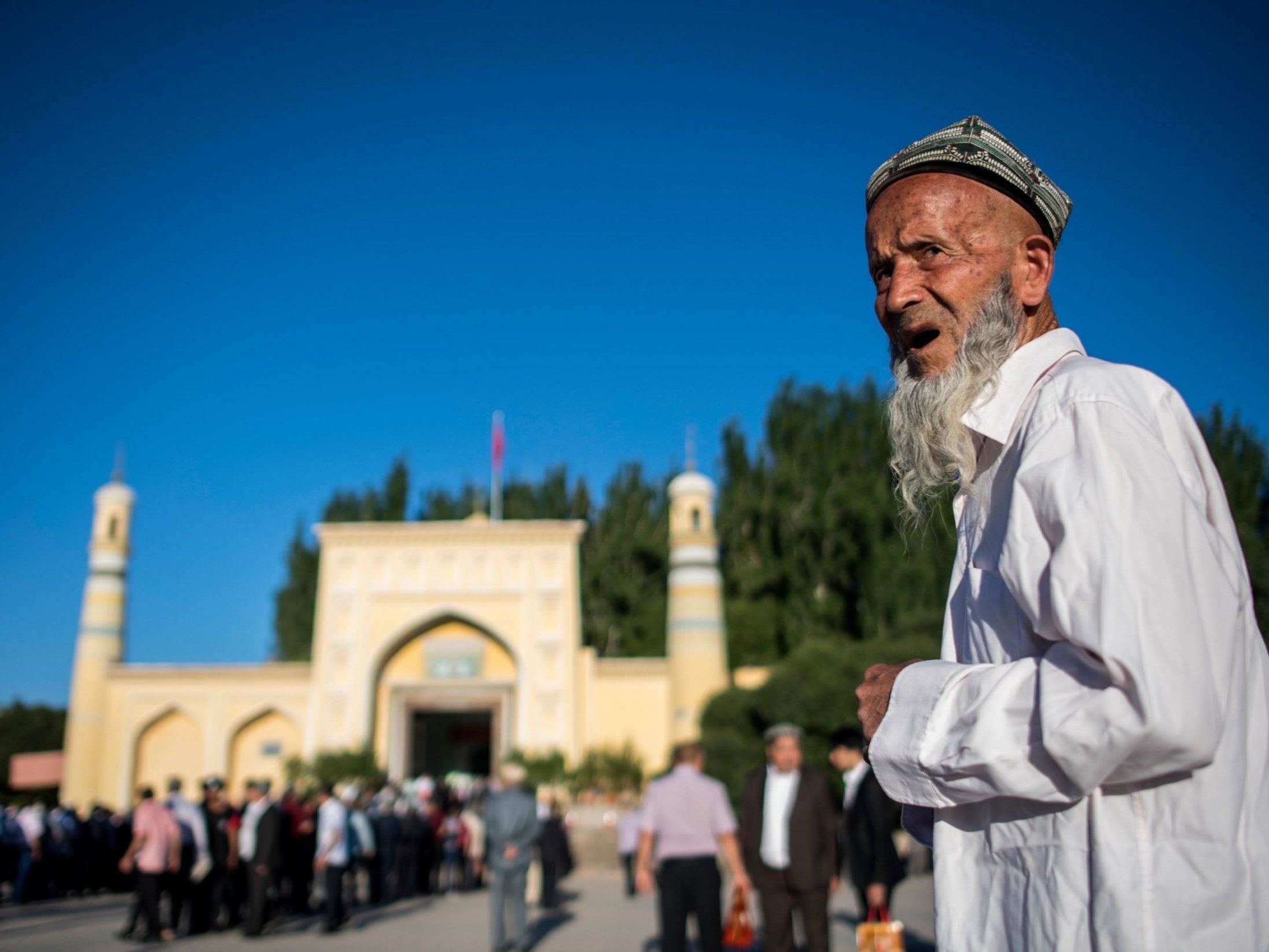
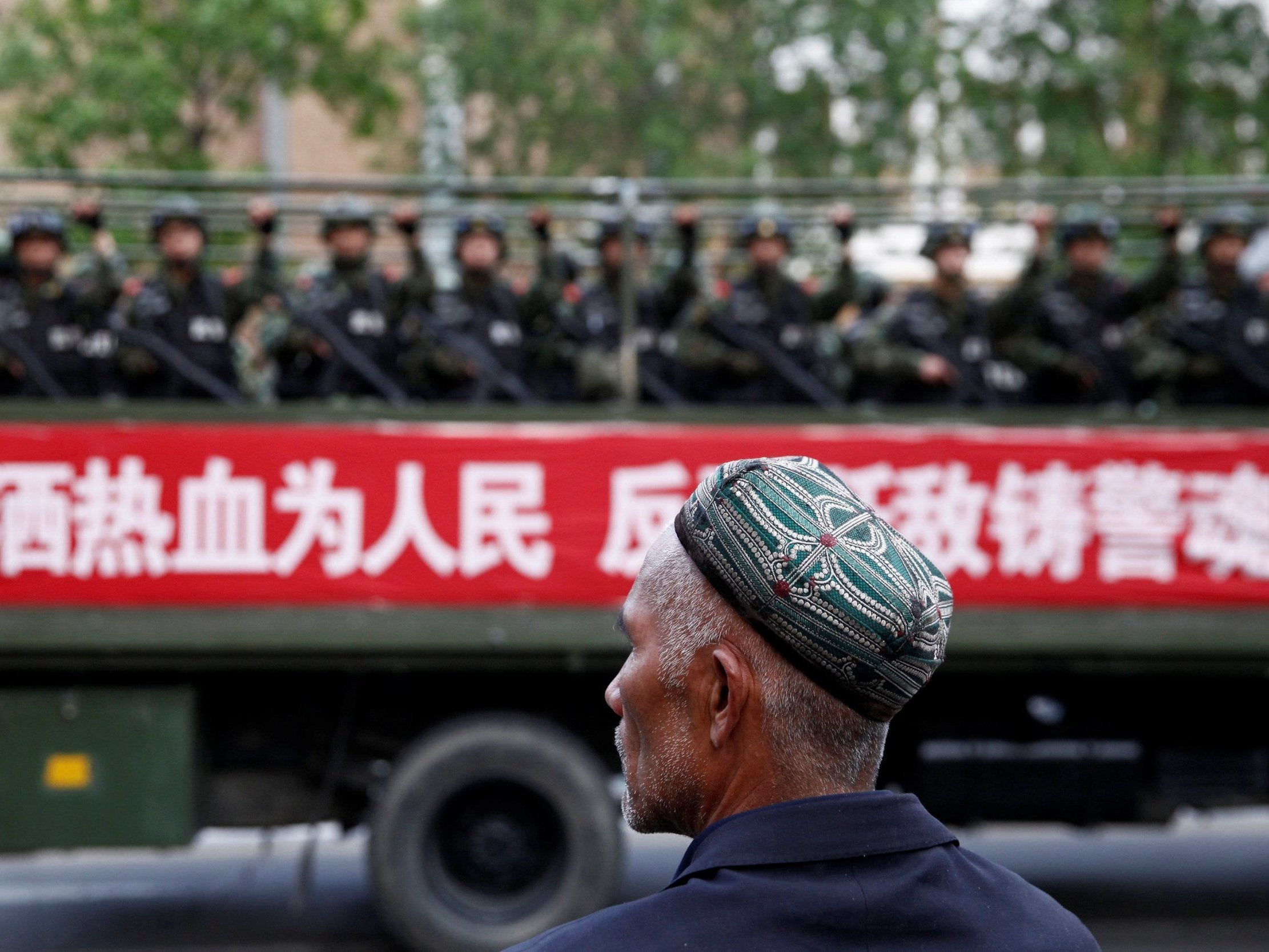
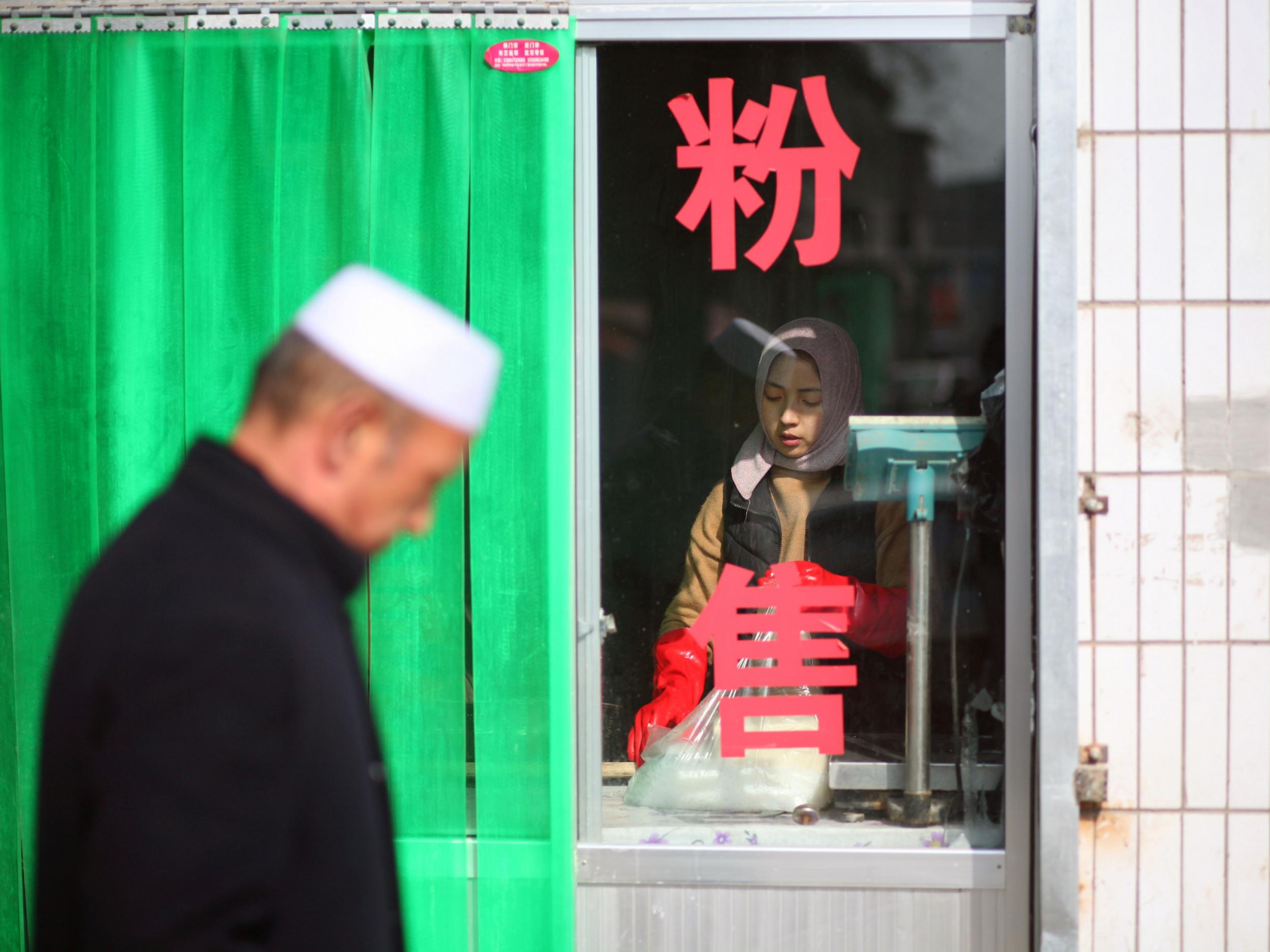
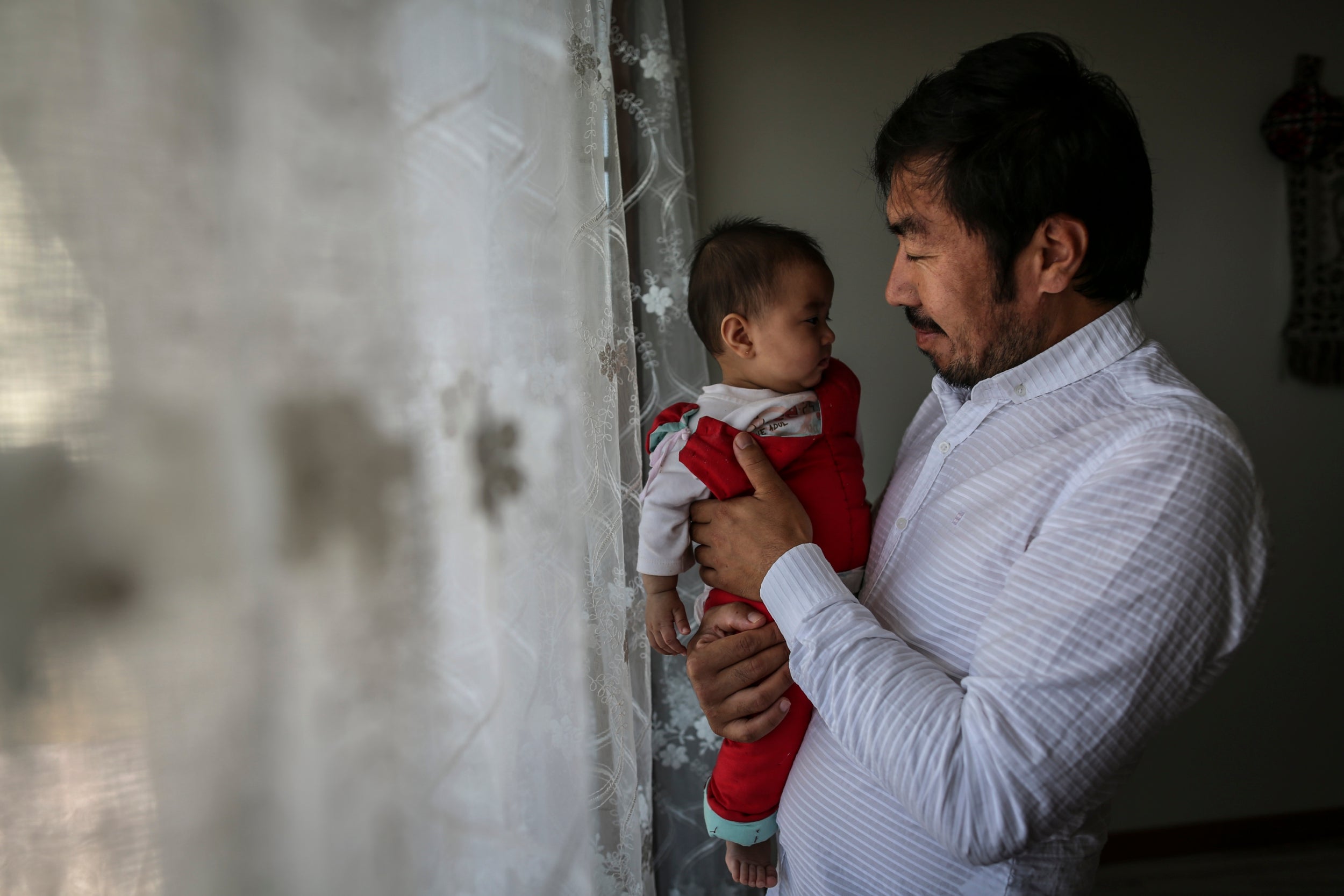
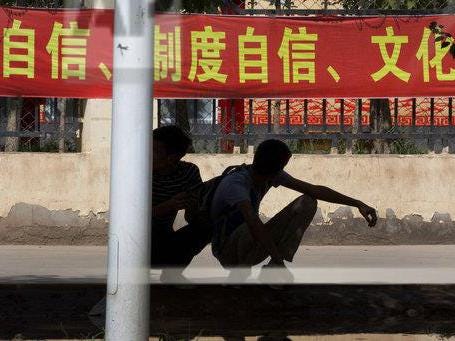


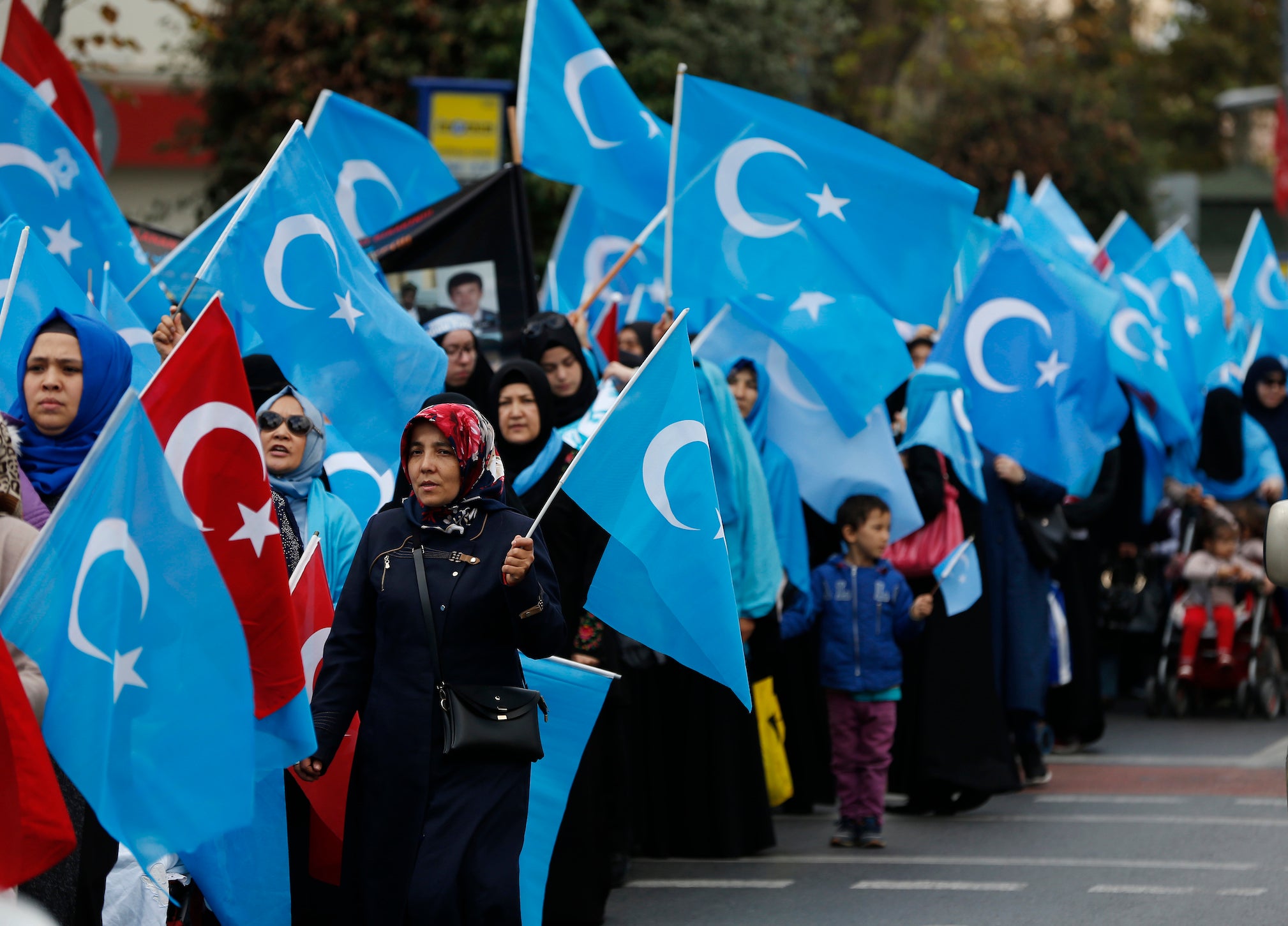
/arc-anglerfish-tgam-prod-tgam.s3.amazonaws.com/public/KK7CBF7T25H3NAJGF4KD5PR5IA.jpg)




